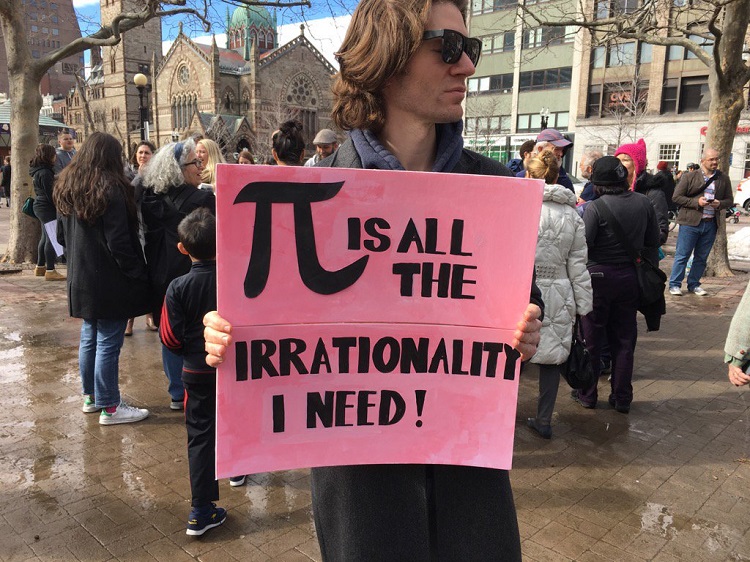
Photo credit: Robin Herman
It’s barely a month into the Trump presidency and protests are becoming a regular occurrence in cities around the United States. On Sunday, February 19, thousands of scientists and supporters gathered in Boston’s Copley Square to “stand up for science”—a subject that’s repeatedly threatened under the current administration. The rally, like others before it, was full of concerned people who are scared at the new direction the country has taken. To amplify their voices, they made science rally signs that were poignant as well as clever.
Many banners pointed to the advancement of medicine—and our health—thanks to science. One read, “Got plague? Yeah, me either. Thank a scientist.” Another echoed the sentiment with “Remember polio? I don’t! Vaccines + science-based policies save lives.” And in a reference to science as well as the controversial immigration ban, one sign implores us to “Build spaceships, NOT walls.”
The large rally coincided with the annual meeting of the American Association for the Advancement of Science (AAAS), the world’s largest general scientific society. “You don’t usually see these kinds of rallies and demonstrations at scientific meetings,” Kishore Hari, a chemist-turned-science educator, told Mashable. “It’s a sign that scientists are feeling not just under attack, but like the integrity of their work is in question.”
Hari, among other scientists, are overcome with worry, stemming from the President’s cabinet officials denying the mainstream scientific consensus about climate change. Scott Pruitt, the new head of the Environmental Protection Administration, has even called himself the “leading advocate against the EPA” while he was Oklahoma’s attorney general. “Usually you hear the phrase ‘let the science do the talking,’” Hari remarked. “I don’t think that’s going to be the case any more.”
Some scientists are going to events like this, while others are working directly with policymakers to make their opinions known. “I think it’s important that every scientist’s voice is heard,” Astrid Caldas, a climate scientist for the Union of Concerned Scientists, said. “There are many ways of advocating for science.”
Check out 20+ of the geekiest (and clever) signs from the Boston science rally.
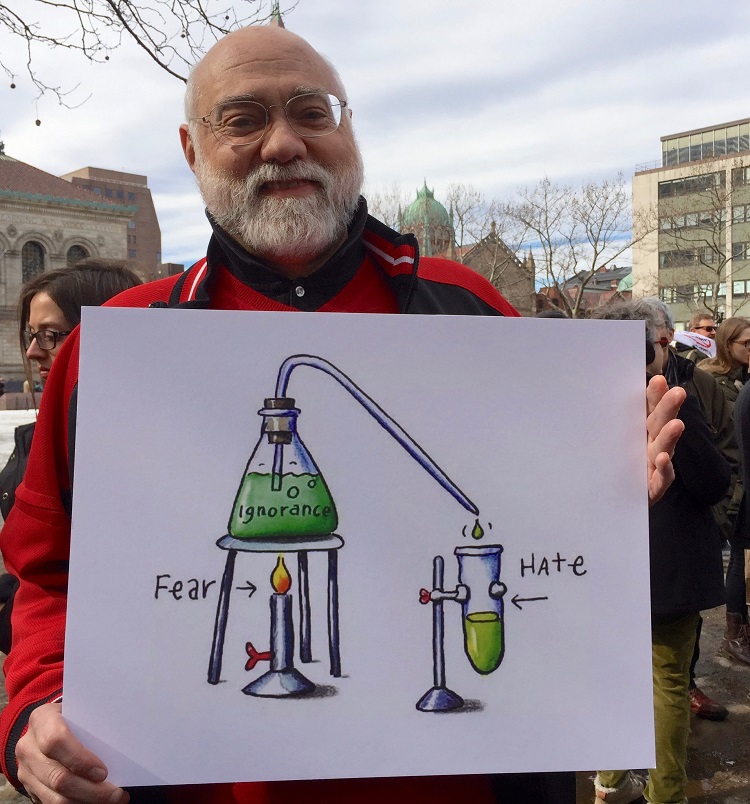
Photo credit: Luca Shapiro
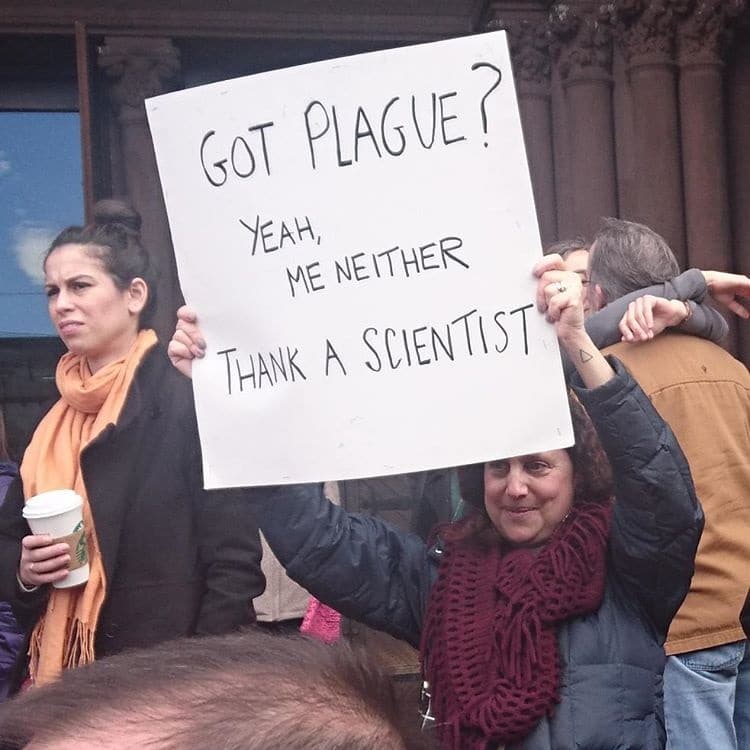
Photo credit: @spiderkakes
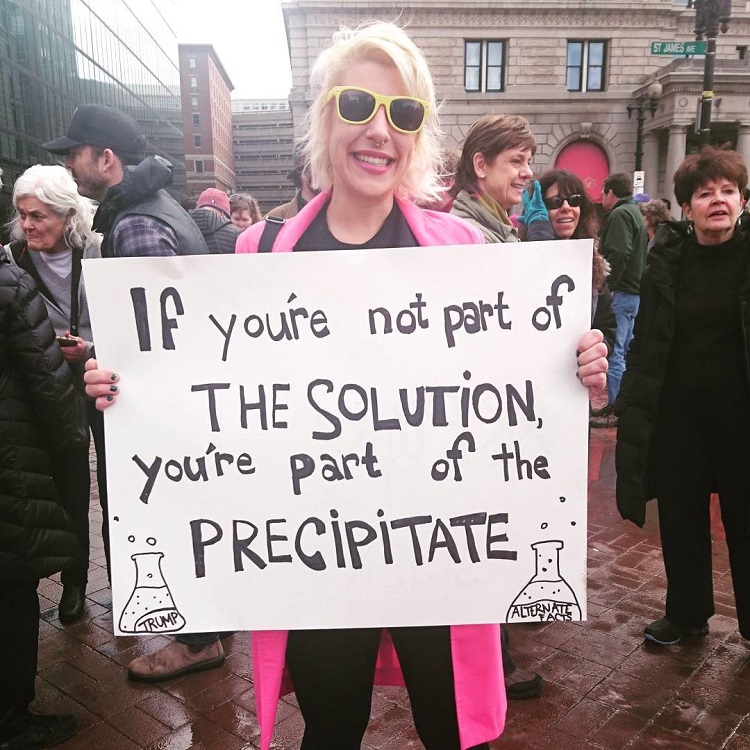
Photo credit: @spiderkakes
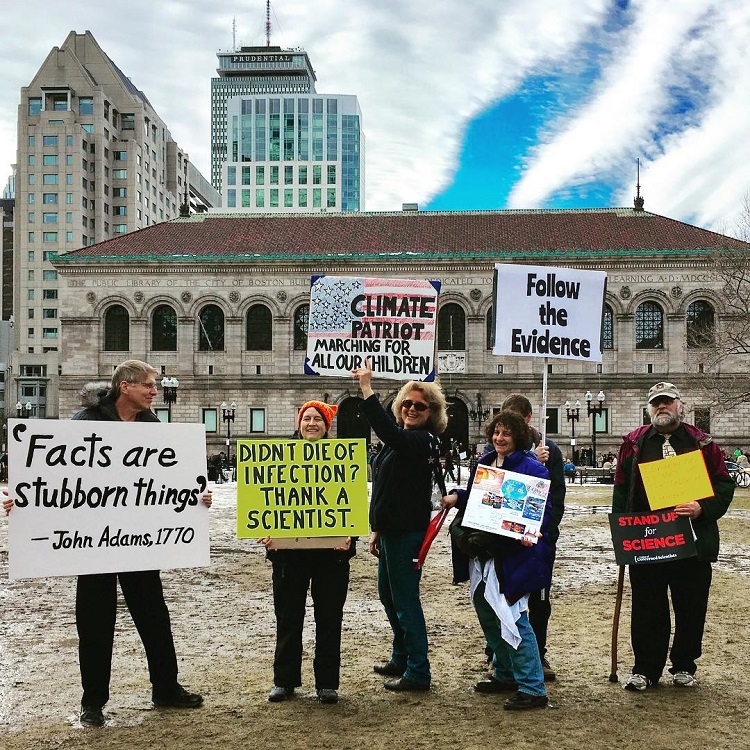
Photo credit: @jparrisk
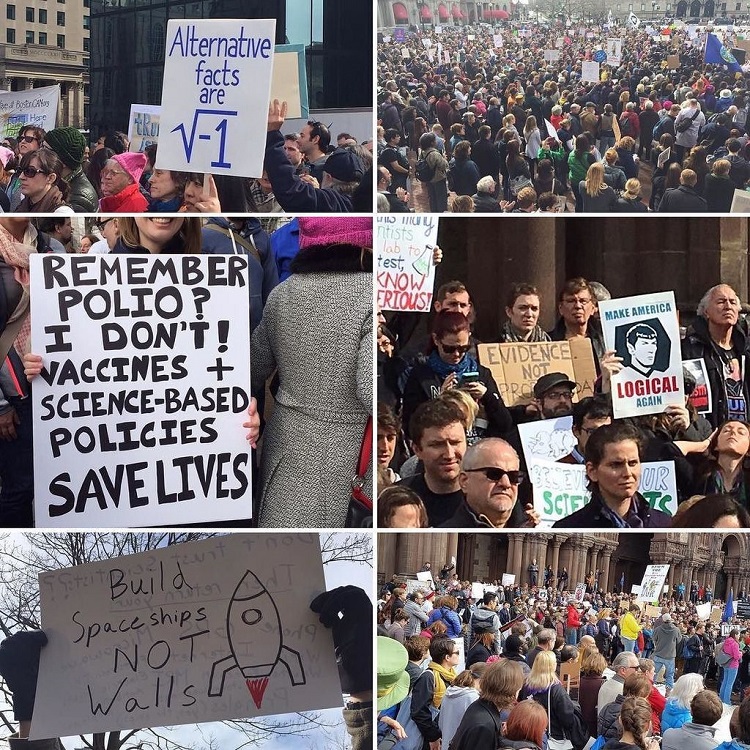
Photo credit: @GayDaysLa
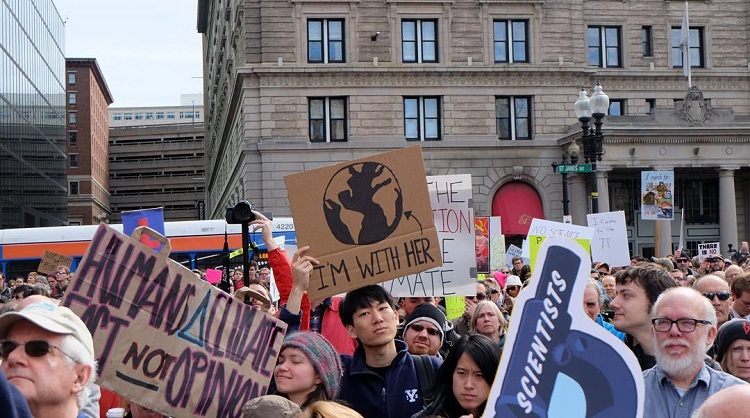
Photo credit: @valdyabara
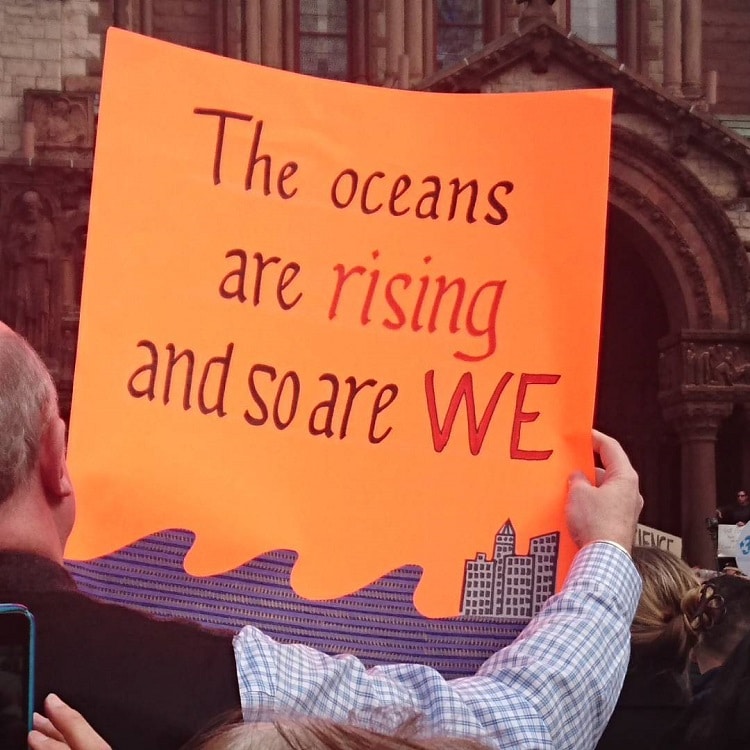
Photo credit: @spiderkakes
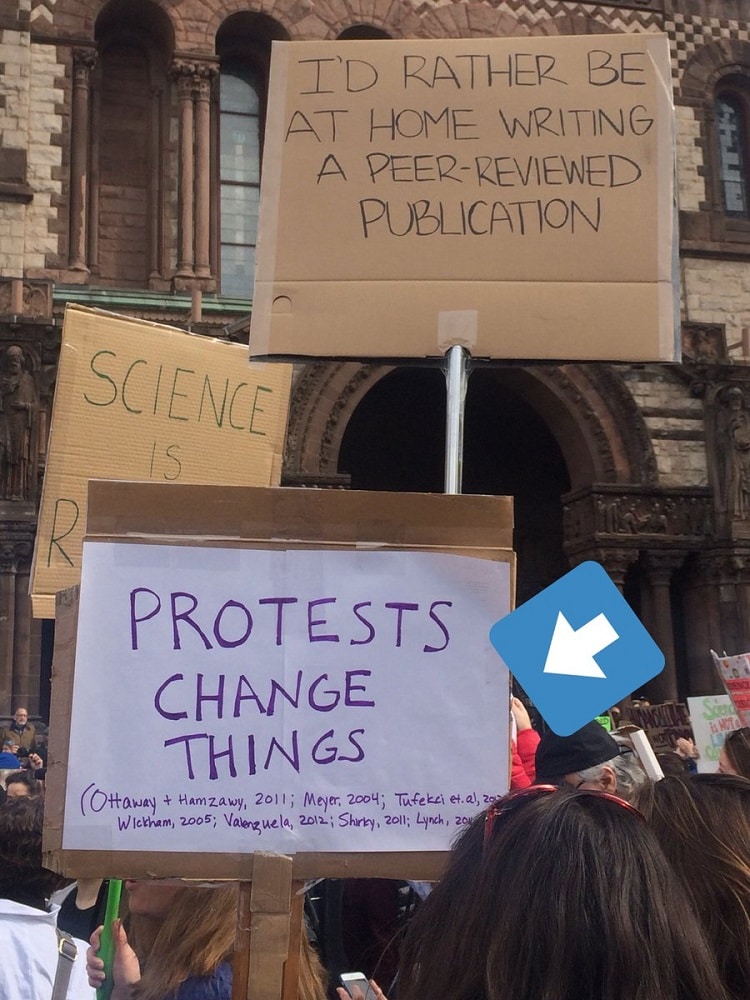
Photo credit: Alex Helman
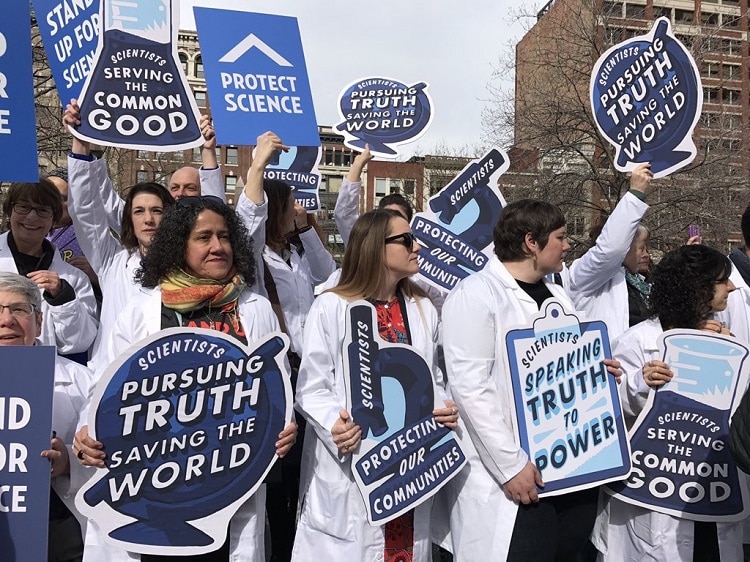
Photo credit: Adam Greenberg
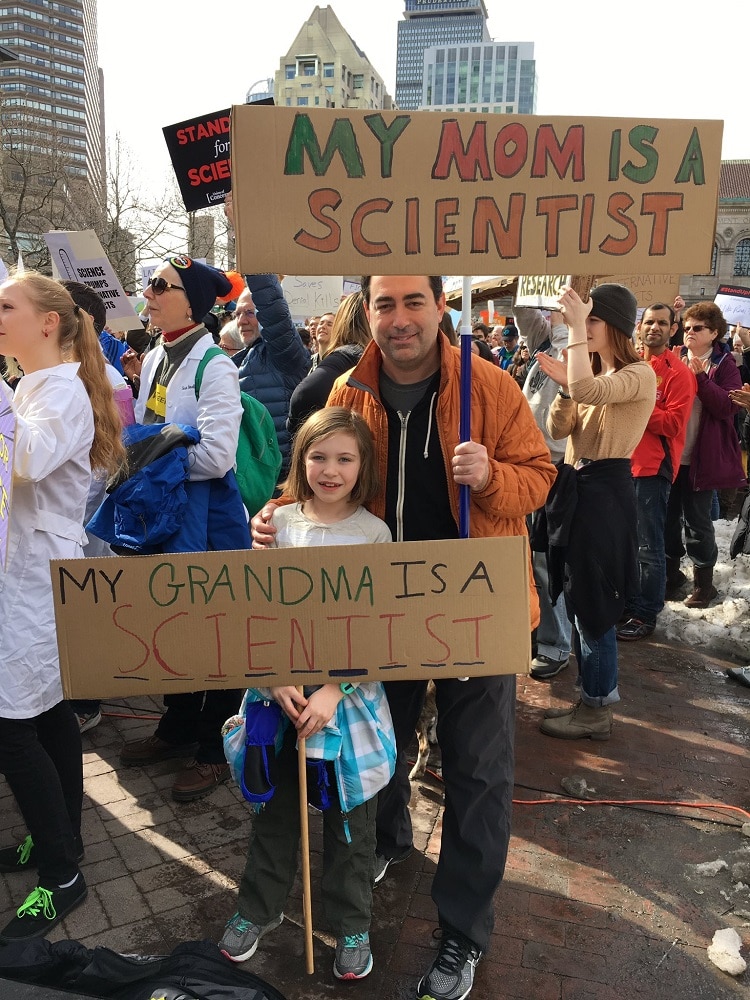
Photo credit: ClimateTruth
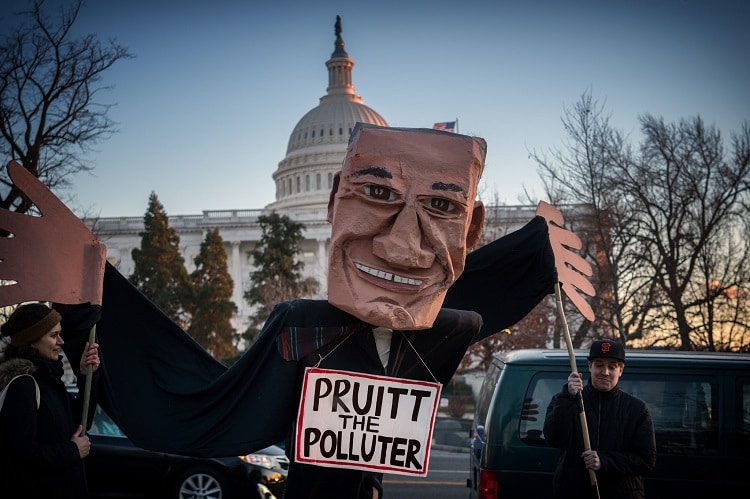
Photo credit: Lorie Shaull
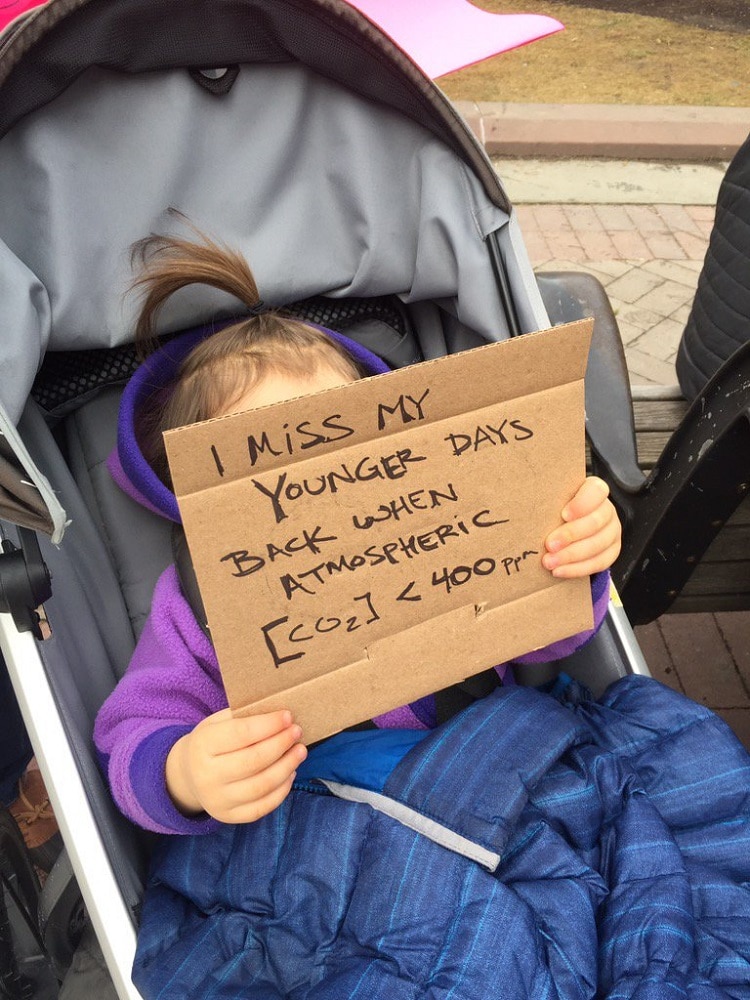
Photo credit: Caitlin MacKenzie
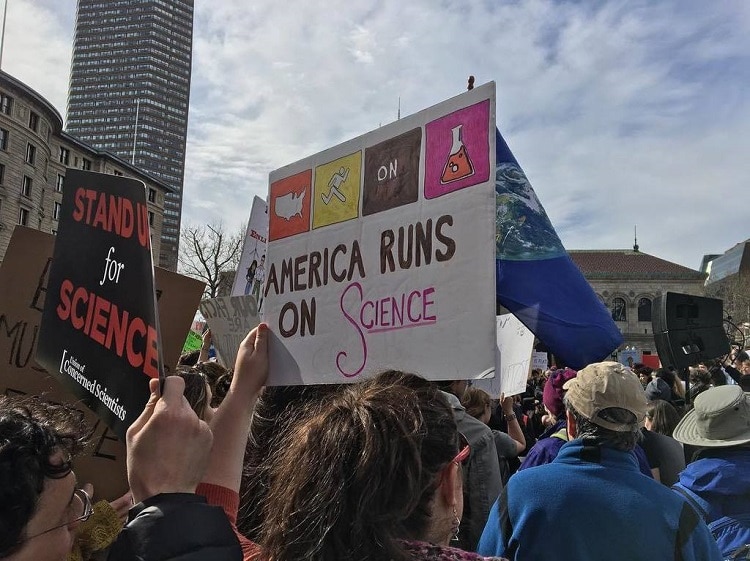
Photo credit: Adam Salsman
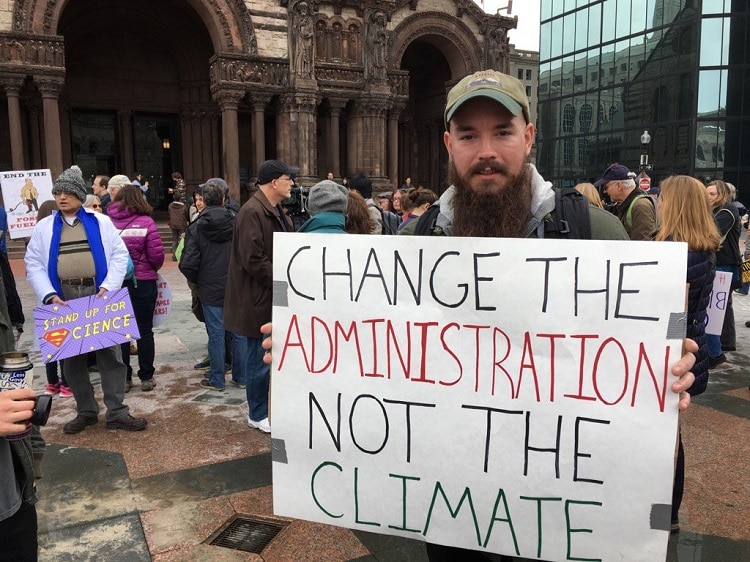
Photo credit: Physics World
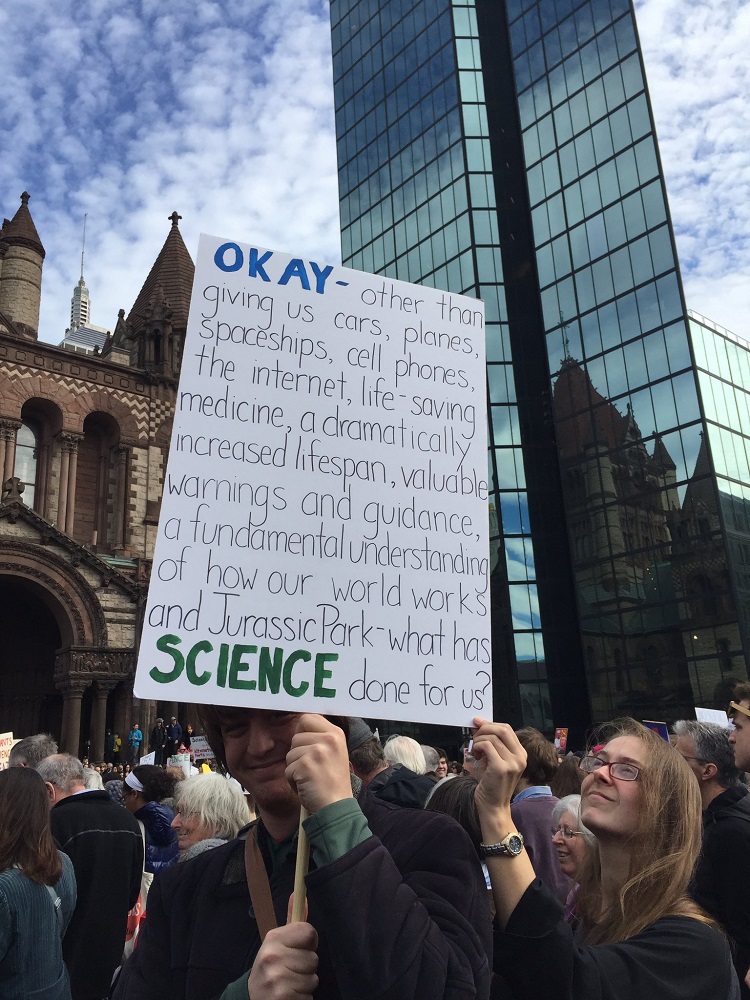
Photo credit: Be Lamarr
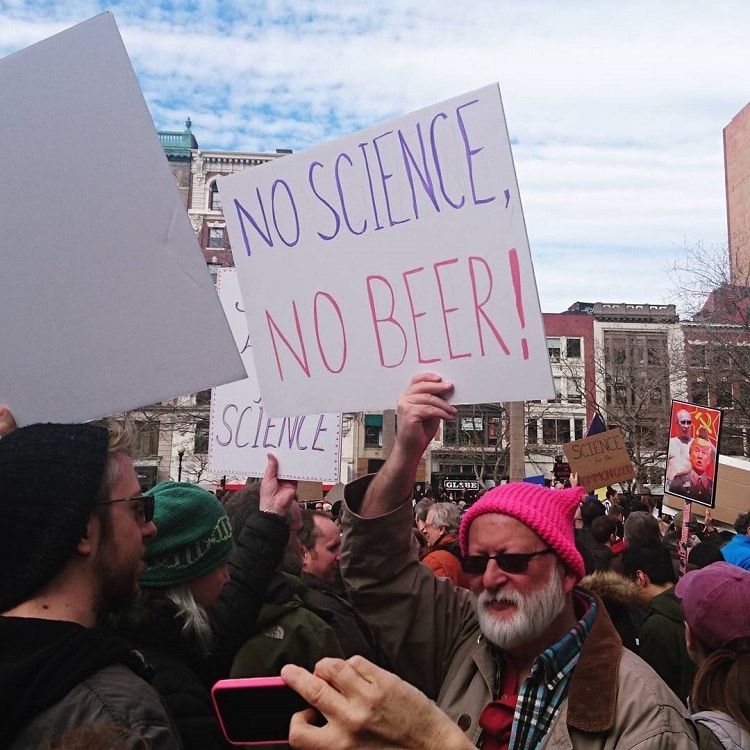
Photo credit: @spiderkakes
Even dogs got in on the protest.
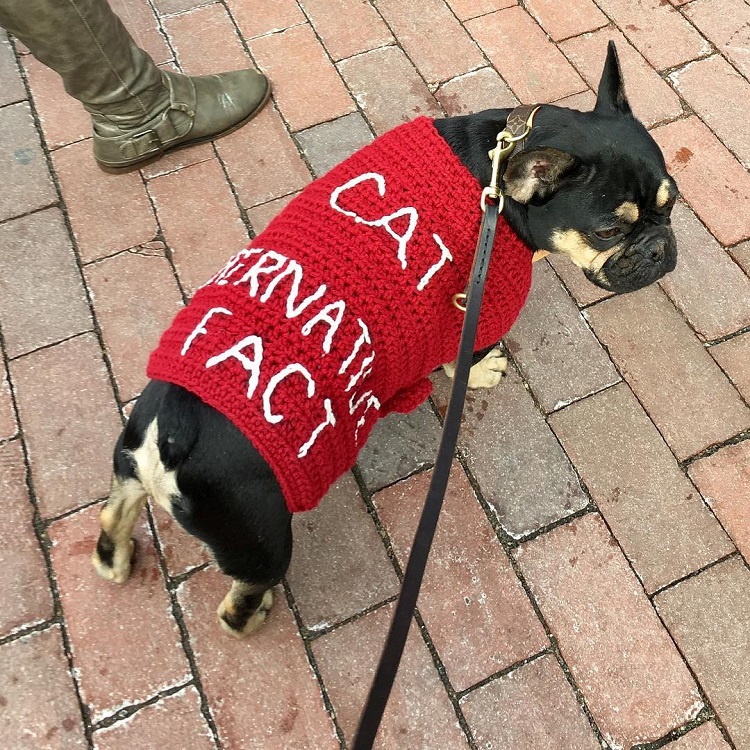
Photo credit: @louisv.frenchie
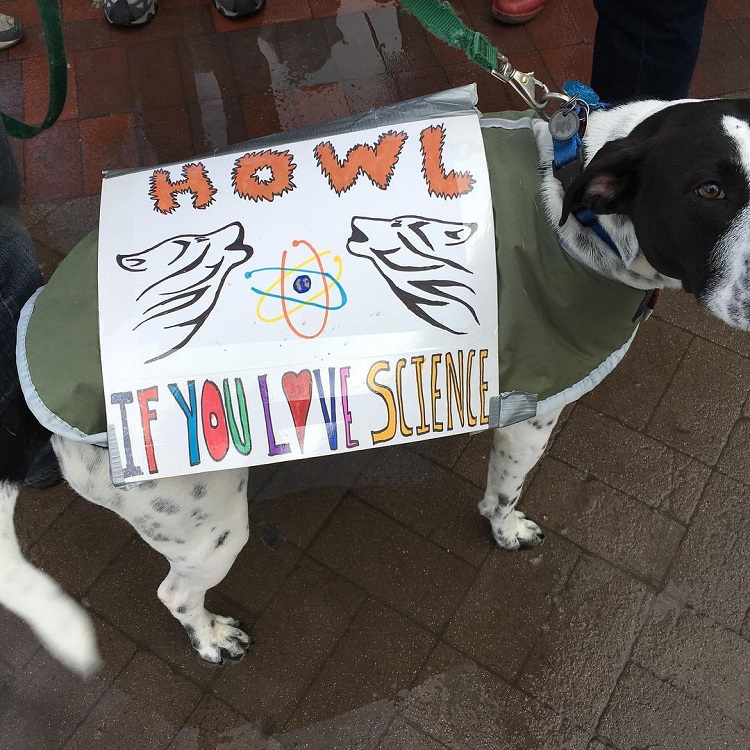
Photo credit: @bettywoood
